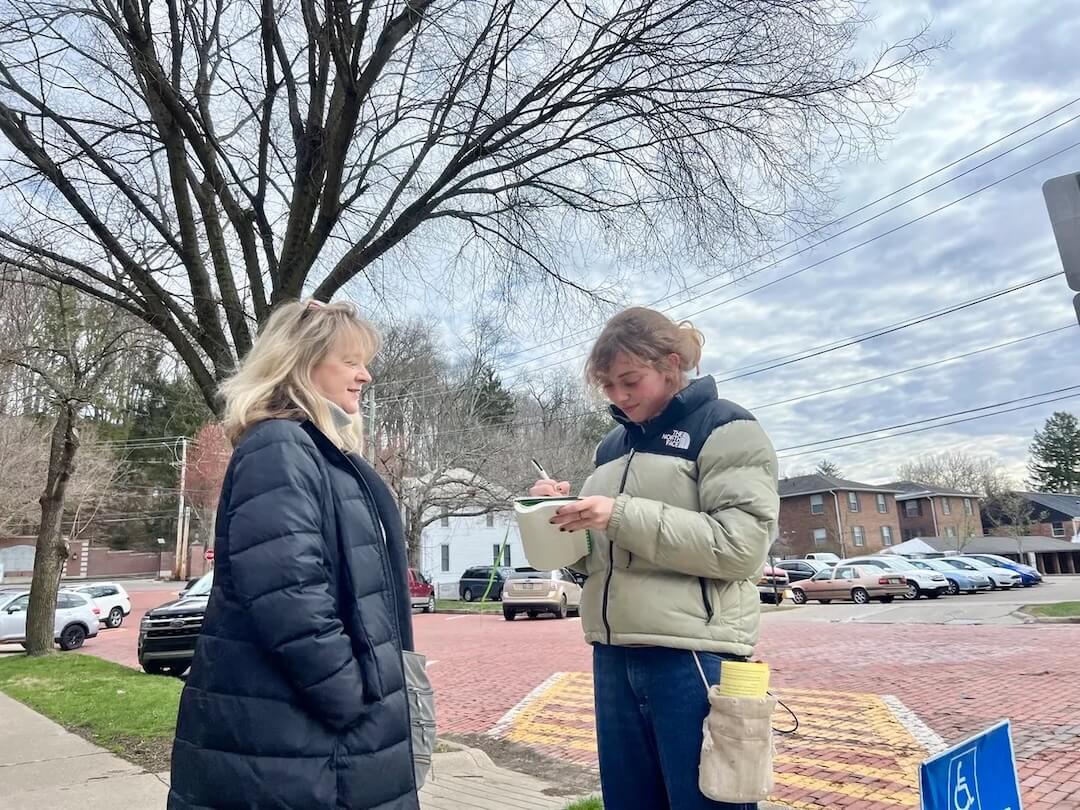
FILE In this July 9, 1991 file photo, Brothers Tom, left, and Ray Magliozzi pose under a car hood in Boston. Tom Magliozzi died today of complications from Alzheimer’s disease. He was 77. (AP Photo/Susan Walsh, File)
Back then it was Elvis, and today, I learned, it was Tom Magliozzi, a dimmer star in the celebrity heavens than the King, but a special personality in his own right. With his brother Ray, he hosted Car Talk, a radio feast for almost 40 years, now in syndication.
If you’ve heard the show once, you know the ingredients:
- Chatter about popular cultural and the events of the day.
- Brainy jokes about language, wives, or automobiles.
- The vestigial remains of what we used to call a “Boston accent.”
- Four or five phone calls from all over the nation and sometimes beyond, complaining about that squeak coming from under the dashboard or the smell of gas coming from the trunk.
- A brain teaser called the Weekly Puzzler.
- And lots and lots of laughter.
What was great about these guys is that they were authentically from the Boston-Italian working class, kids from the neighborhood who happened to have degrees in chemical engineering from MIT. They could talk about engines the ways the Jack Nicklaus can talk about a golf swing, the way Shakespeare, I imagine, could talk about the sonnet.
Part of their genius was to latch themselves on to something huge and almost universal. It could have been music, food, or love. In their case it was THE CAR. Their interest of course, was not just the car, but all of the human relationships the car enabled or distressed.
Coincidentally, I just spent a couple of lucky days in Detroit working with the good journalists from Automotive News. I told them, though they already knew, how lucky they were to be writing about cars. No other invention, I argued, had inspired more song lyrics or stories than the American automobile. At least one of us, I opined without evidence, was probably conceived in the back seat of a Ford or Chevrolet.
Write down the themes you think of when you imagine a car: Freedom, escape from home, commuting to work, going on vacation, the drive-in movie, the drive-through window, crime, sex, family, the suburbs, pollution, accidents, speeding tickets, love, and, of course, death.
The Magliozzi Brothers tapped into that culture like few others in American entertainment history. They understood the almost universal American experience of wanting, needing a set of wheels, and the incredible frustration when that vehicle lets you down, or costs you money.
I once suggested to someone in Boston, I forget who, that what was then the Nieman Narrative Conference should invite Tom and Ray to do a panel discussion, or even better, to do a live broadcast of their show at Harvard. The reaction I got suggested that they would prefer someone like Tom Wolfe or Norman Mailer.
But in their own mode, Click and Clack (their nicknames) were masters of the narrative arts. When a caller called, there was often banter about how the caller got her unusual name and something about the city, town, or village from whence they came. The more remote the town or the more interesting the name, the more occasion there was for some lively anecdote.
More storytelling might precede the automotive problem, “My husband and I are having an argument about when to use the emergency brake, so we turned to you guys to find out which one of us is right.” Or, “I just got a divorce, and I want to know what kind of a car I should buy to attract women who are in their 40s.”
Then of course, came the description of the problem, which almost always had narrative elements. “On cold mornings the sound is really loud until I get on the Interstate. It goes away when I hit 60 mph, but then my steering wheel starts to shake.”
What follows is the automotive equivalent of a mystery story, with Tom and Ray sifting through the evidence like Holmes and Watson. What did it sound like? When did you first hear it? What did your mechanic say? And, when they hit on a possible explanation, there was one more story to be told: “This is what I think is happening with your Subaru.”
I suddenly realize that I’ve been writing about Tom and Ray as if they are both now dead, T-boned, perhaps, by a tractor trailer on their route from the garage to the recording studio. Ray, the lead singer of the duo, it turns out, is still with us. But there are certain acts that never seem to work as a solo. This, I fear, is one of them. My condolences, of course, go to Ray and the entire Magliozzi family. They gave me and my wife (who is from Rhode Island and used to talk like them!) many laughs and, from time to time, saved me a few bucks when it came to fixing my car. But nothing was more valuable than those stories.








Comments